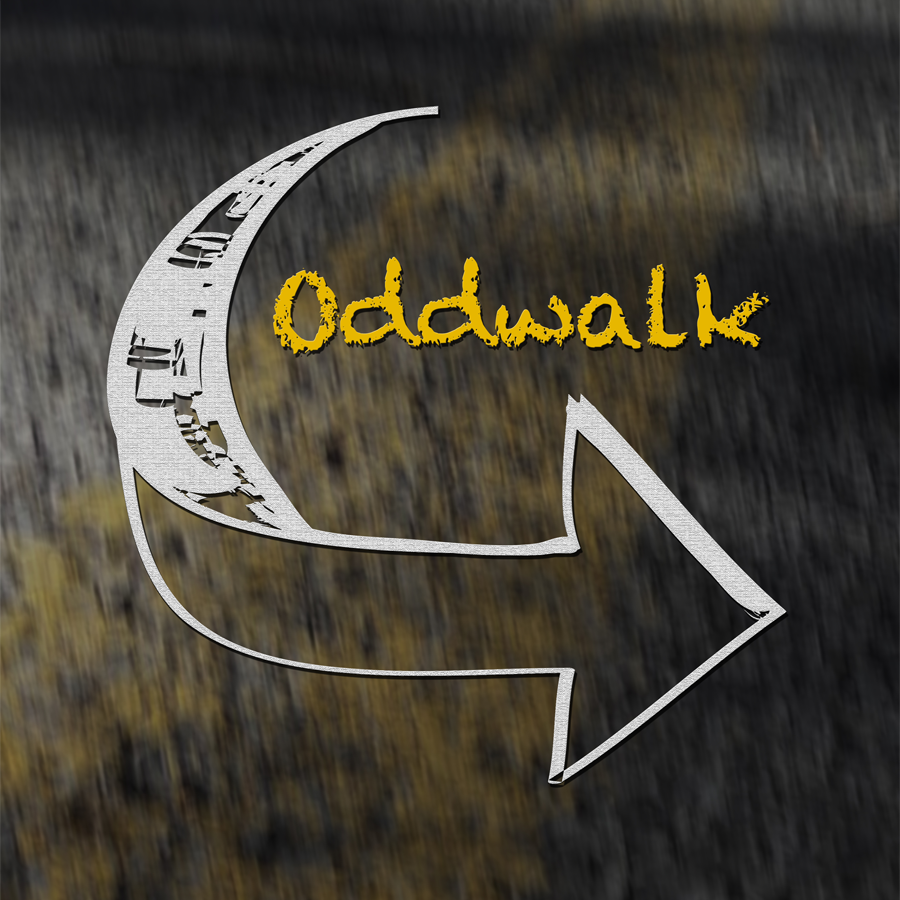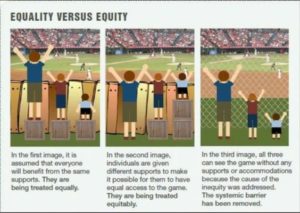It’s quite likely you’ve seen an image on the internet the last couple of years that looks like this one – or at least looks like the first two panels of this one. Usually, the first two panels are meant to describe the difference between equality and justice. That image has always been appealing to me (Orin), but has also bothered me for a reason I at first couldn’t quite put my finger on.
Then the other day, I saw this version, and that particular cloud was lifted from my eyes. It was that the barrier in front of the people trying to see the baseball game was still in place. I immediately thought of the experiences Shannon and I have with the summer teen work and learning camp Young Neighbors in Action – youngneighbors.org – in which we often talk about not just filling the cracks that those who most need are help are falling through, but asking why those cracks are there in the first place. The graphic talks about equality, equity, and justice. Some before had called the second panel justice, where what justice really is, and what our faith calls us to pursue, is in that third panel. Mercy might be the act of showing kindness and support to those suffering any affliction; justice is attempting to remove that oppression from our midst. Click the image to take a closer look.
Isaiah 58:6-10 tells us:
Is this not, rather, the fast that I choose:
releasing those bound unjustly,
untying the thongs of the yoke;
Setting free the oppressed,
breaking off every yoke?Is it not sharing your bread with the hungry,
bringing the afflicted and the homeless into your house;
Clothing the naked when you see them,
and not turning your back on your own flesh?Then your light shall break forth like the dawn,
and your wound shall quickly be healed;
Your vindication shall go before you,
and the glory of the LORD shall be your rear guard.Then you shall call, and the LORD will answer,
you shall cry for help, and he will say: “Here I am!”
If you remove the yoke from among you,
the accusing finger, and malicious speech;If you lavish your food on the hungry
and satisfy the afflicted;
Then your light shall rise in the darkness,
and your gloom shall become like midday.
When you do good works in the world, are they acts of equality, equity, mercy, or justice? All are needed, but true works of justice are ones that might strip away even the need for the other three. Do you help people see over the fence, or do you take that fence away? Difficult questions for all of us, myself included. Something to pray about this week as we enter into Lent, a time for (among other things) service and self-sacrifice. Orin


